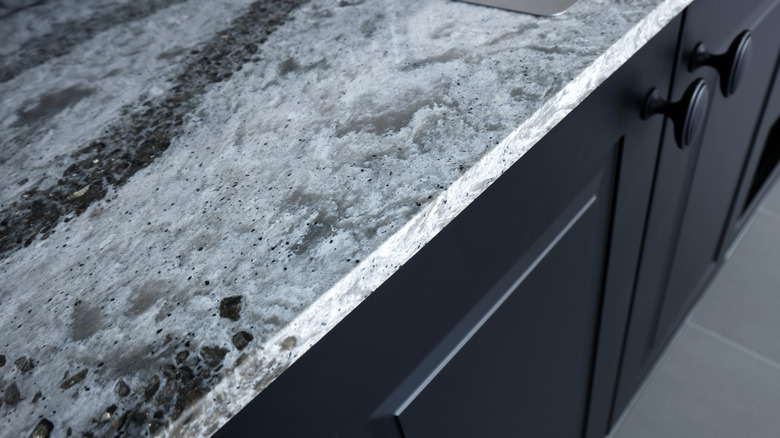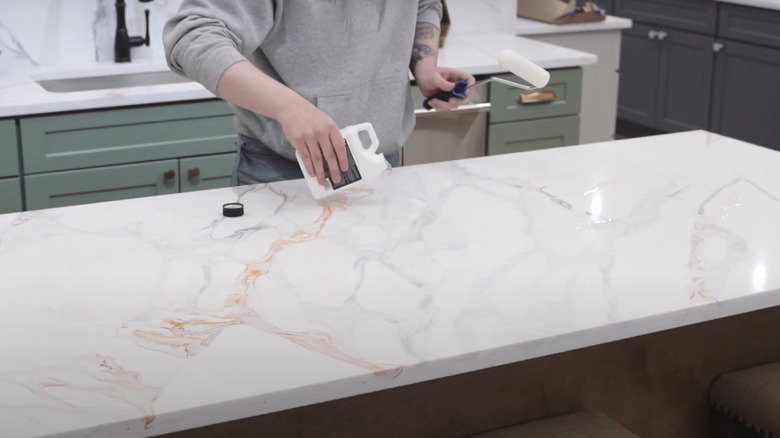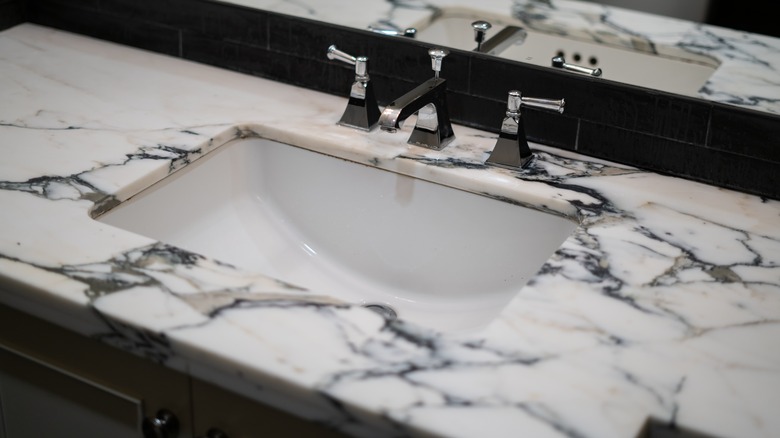Do You Need To Seal Quartz Countertops?
Because kitchens and bathrooms are used so often in a home, it's important to choose countertop materials that you and your family are comfortable with. When deciding whether quartz countertops are a good choice for your home, one of the questions that may come up is whether you need to seal them or not. Many people know that regular sealing is necessary to keep natural stone countertops looking their best. Materials such as marble and granite need to be sealed to prevent damage and keep them safe from moisture and other types of damage. However, many are unsure whether quartz needs to be sealed as well.
Let's get straight to the point — quartz countertops don't need to be sealed. While quartz is a natural substance, quartz countertop is a man-made material that isn't porous like marble and granite. Unlike natural stone, liquids won't be able to penetrate the surface of the material and soak through since it has so much built-in protection. Quartz countertop is made using natural quartz mineral and silicon dioxide, resins, and coloring agents. This combination is more durable than the natural stone itself.
Sealing quartz countertops can still add extra protection
While you don't have to seal quartz, you may want to do it anyway. Even without sealant, quartz countertops are very resistant to scratching, chipping, and cracking, but they're not invincible. In the same vein, a quart countertop can still be stained even though it's stain-resistant. Sealing the quartz will help to add more durability and will protect it from scratches and staining, ensuring that it lasts as long as possible.
Make sure that you choose the correct sealant to use, however. An incorrect sealant may not penetrate the material or come off properly and could lead to an uneven polish. Don't use penetrating sealers since these can have damaging effects on the quartz countertops' resin.
Only use a product that's specifically meant for quartz countertops so that it won't cause more harm than good. Fortunately, quartz sealant is very affordable. You won't have to spend a lot to add this extra protection to your countertops.
How to prevent damage to quartz countertops
In addition to avoiding incompatible sealers, you should also be careful with any chemicals that you use on your quartz countertops. Avoid using any cleaning products and chemicals that are abrasive or highly acidic. Harsh cleaners such as bleach are also damaging to quartz.
Avoid causing physical damage to quartz countertops, as well. Although quartz is extremely durable and can take a pounding, hard contact with knives or heavy objects can still damage it. Also, just as you shouldn't use abrasive cleaners, don't use abrasive cleaning tools like rough sponges and steel wool. Finally, don't place hot pans and cookware on the surface. Even though the material is heat resistant, it can still be damaged by heat. When this happens, it can cause quite a lot of discoloration.
Clean quartz countertops regularly to keep them in great shape over time. Always remove spills quickly, and only use gentle cleaners for stain removal. Generally, all you'll need is soap and water to clean up messes that result from daily use. You can also use vinegar to clean quartz countertops, if the vinegar is diluted with water.


